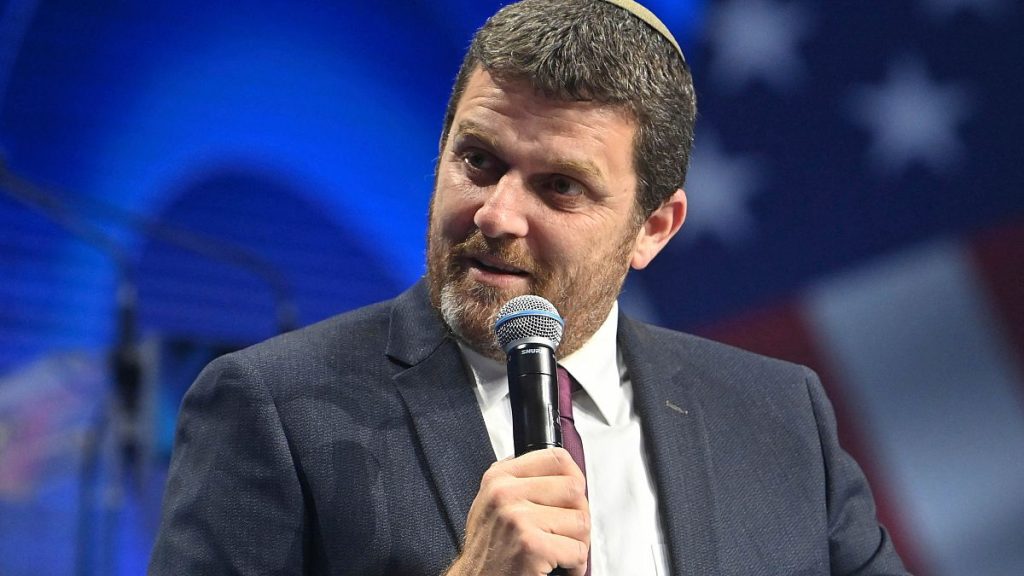A recent letter has ignited controversy within the European Parliament, targeting Israeli lawmaker Amit Halevi for what is described as “dehumanizing statements” regarding Palestinians. The letter, signed by 36 members of the European Parliament (MEPs), calls on the Parliament’s President Roberta Metsola to bar Halevi from participating in an upcoming conference organized by the Israel Alliance Foundation and the European Conservatives and Reformists group in Brussels. The conference aims to address issues related to the Iranian regime, but the debate surrounding Halevi’s invitation has overshadowed the event. Concerning remarks made by Halevi have prompted strong opposition from various European political factions, raising questions about the implications of hosting him and the adherence to the European Parliament’s core values.
The attempt to exclude Halevi comes after an initiative led by Dutch Greens/EFA MEP Tineke Strik, alongside Slovenian Socialist MEP Matjaž Nemec and Irish Renew Europe MEP Barry Andrews. Their letter reflects a cross-party coalition, including members from the Socialists and Democrats, Greens/EFA, Renew Europe, and The Left groups. The authors argue that Halevi’s involvement in the European Parliament would threaten the institution’s fundamental principles, such as integrity and respect for the dignity of the assembly. They highlight Halevi’s recent comments perceived as inciting violence and dehumanization of Palestinians, emphasizing the need for accountability within the European Parliament.
In a specific interview, Halevi asserted that the Al-Shifa Hospital harbored terrorists and made inflammatory claims regarding the inevitability of children born there becoming terrorists. His denial of Palestinian identity—stating “There is nothing called Palestinian people, never was, and will never be”—was particularly provocative. Moreover, in a subsequent Facebook post, he categorized Palestinians in a manner that dehumanized them, suggesting that bombing both those who support Hamas and those serving as their human shields was justifiable. Such remarks reflect a broader pattern of controversial rhetoric that has drawn significant criticism from various political sectors, as well as human rights advocates.
The letter from MEPs also underscores Halevi’s legislative proposals aimed at the annexation of Gaza and the expulsion of its civilian population, revealing a hardline stance that many in Europe find unacceptable. Halevi’s suggestion that resettling families from Gaza could resolve the situation further underscores the alarm expressed by the signatories. With such statements, the MEPs argue that Halevi undermines the values of humanity and respect that the European Parliament is supposed to uphold.
In response to the objections, MEP Bert-Jan Ruissen, the event organizer, has defended Halevi’s participation, downplaying the criticism. Ruissen asserts that the allegations against Halevi, including a supposed endorsement of violence, were misrepresented. The varying interpretations of Halevi’s statements further complicate the discussion surrounding his role in the conference, as supporters of Halevi argue for the necessity of open dialogue, even with controversial figures. Their perspective highlights a tension within European politics about balancing free speech with safeguarding human rights and dignity.
As the situation unfolds, the fate of Halevi’s participation remains uncertain, with no official comment from EP President Roberta Metsola at this time. The call to bar Halevi reflects growing concerns about the implications of hosting individuals with extremist views within prestigious international forums. This incident showcases the delicate balance that the European Parliament must navigate between fostering open discussions and maintaining a commitment to respect and dignity for all peoples, especially in the context of deeply sensitive and contentious issues like the Israeli-Palestinian conflict.














